- Select country:
- Select campus:
- View all courses
- Taught postgraduate study
- Postgraduate taught degree courses
- Postgraduate taught tuition fees
- Pre-masters for international students
- Funding your postgraduate taught studies
- How to apply for a postgraduate taught degree
- Postgraduate offer holders - prepare for your studies
- Pre-sessional English courses
- PhDs and research degrees
- Create your own research project
- Find a PhD project
- Funding your research degree
- How to apply for a PhD or research degree
- How to make a PhD enquiry
- Support while studying your PhD or research degree
- Exchanges and studying abroad
- Undergraduate study
- Undergraduate degree courses
- Foundation year programmes
- Undergraduate tuition fees
- Customise your degree
- Funding undergraduate studies
- How to apply
- Tuition fees and funding
- Short courses
- Lunchtime evening and weekend courses
- Summer schools
- Get a prospectus
- Student life
- Accommodation
- Choose your halls of residence
- Apply for accommodation
- Guaranteed accommodation
- Your accommodation options
- Accommodation for those with additional requirements
- International and pre-sessional students
- Postgraduate accommodation
- Couples and students with children
- Renting privately
- Our accommodation areas
- Privacy notice
- Terms and conditions
- Fees and contracts
- Southampton
- Sports and gyms
- Sports facilities
- Sports clubs
- Watersports centres
- Our campuses
- Avenue Campus
- Boldrewood Innovation Campus
- City Centre Campus
- Highfield Campus
- University Hospital Southampton
- Waterfront Campus
- Winchester Campus
- Join our student community
- What's on
- Clubs and societies
- Sports teams
- SUSU places
- Representing you
- SUSU support and advice
- Support and money
- Living costs
- Academic and mental health support
- Support for disabled students
- Part-time work
- Health services
- Research projects
- Research areas
- Research facilities
- Collaborate with us
- Institutes, centres and groups
- Support for researchers
- Faculties, schools and departments
- Research jobs
- Find people and expertise
- Develop your organisation
- Access start-up support
- Invest in our start-ups
- Become a research partner
- License our technology
- Knowledge Transfer Partnerships
- Hire our facilities
- Academic consultants
- Specialist consultancies
- Research studentships
- Develop your workforce
- Continuing professional development
- Set up a staff secondment
- Host a placement student
- Collaborate on a short term student project
- Advertise graduate jobs and internships
- Become a supplier
- International students
- International Office
- Partnerships and initiatives
- Visiting delegations
- Visiting fellowships
- University of Southampton Delhi
- University of Southampton Malaysia

Maritime Engineering Science: Yacht and High-performance Craft (MSc)
Maritime Engineering Science: Yacht and High-performance Craft (MSc) starting September 2025 for 1 year
About this course
On this Yacht and High-performance Craft engineering MSc degree you’ll specialise in the analysis, design and performance of yachts, small craft and high-performance vessels. You’ll also gain an understanding of the fixed and offshore structures that help them to function. You'll graduate with the specialist skills in maritime engineering science to design and analyse marine craft and structures.
This Maritime Engineering Science: Yacht and High-performance Craft MSc is one of 5 maritime engineering science specialisms you can study at the University of Southampton.
This master's degree covers the core subjects and in-depth knowledge of maritime engineering science for both design and analysis of marine craft and structures within the marine environment.
If you have a first degree in engineering, science or maths and are looking for a career in the maritime sector and yacht design degree to study, this could be the course for you. We'll also consider you if you have relevant experience. You don’t need specialist knowledge of the subject, as we’ll teach you the fundamentals of ship science.
Specialist yacht engineering modules on this MSc programme, will give you a chance to explore the performance and design of a variety of high-performance small craft including:
- planing craft
- sailing yachts
- hydrofoils
- hovercraft
You'll discover how to calculate a vessel's performance as you learn about common types of full-scale trials. You’ll gain key skills in areas like force balance, drag breakdowns, resistance approximations and stability.
Through design-oriented work, you’ll find out how the basic mechanics in each case are applied – first through simplified scenarios and then through more complex engineering design.
We regularly review our courses to ensure and improve quality. This course may be revised as a result of this. Any revision will be balanced against the requirement that the student should receive the educational service expected. Find out why, when, and how we might make changes .
Our courses are regulated in England by the Office for Students (OfS).
Course lead
Dr Melike Kurt , an Assistant Professor leads this course.
Related pathways
If you'd prefer to study a different specialism, you can apply for one of our other MSc Maritime Engineering Science pathways:
- Advanced Computational Engineering
- Marine Engineering and Autonomy
- Naval Architecture
- Ocean Energy and Offshore Engineering
Accreditations
This master's programme is accredited by the Institution of Mechanical Engineers (IMechE), the Royal Institution of Naval Architects (RINA) and the Institute of Marine Engineering, Science and Technology (IMarEST) as meeting the academic requirement for Further Learning, for Chartered Engineer and Chartered Marine Engineer registration. Candidates must hold a BEng/BSc undergraduate first degree that is accredited for Chartered Engineer (CEng) registration to comply with full CEng registration requirements.
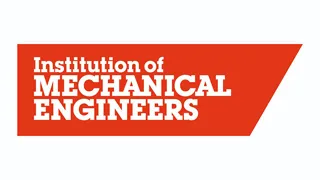
Institution of Mechanical Engineers (IMechE)
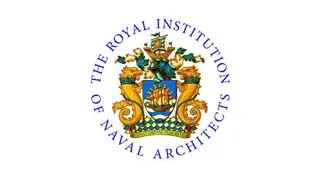
Royal Institution of Naval Architects (RINA)
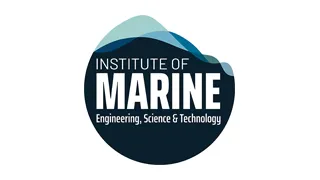
Institute of Marine Engineering, Science and Technology (IMarEST)
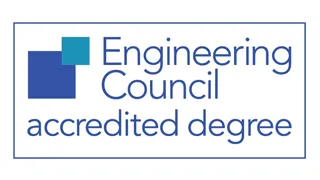
Engineering Council
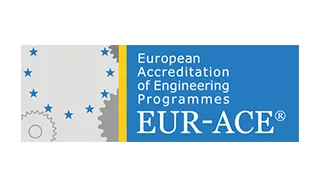
European Accreditation of Engineering Programmes (EAEP)
Using the towing tank in your ship science degree, learn more about this subject area.
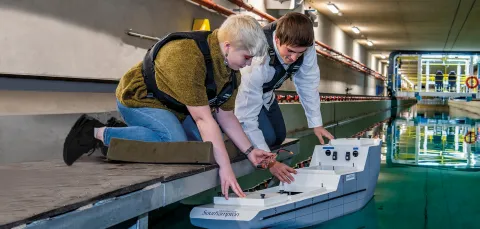
- Maritime engineering
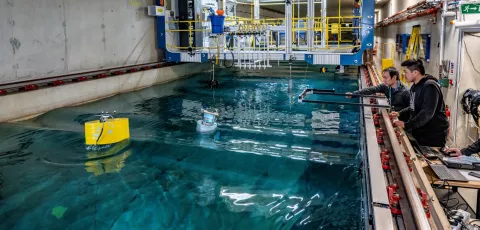
Towing tank
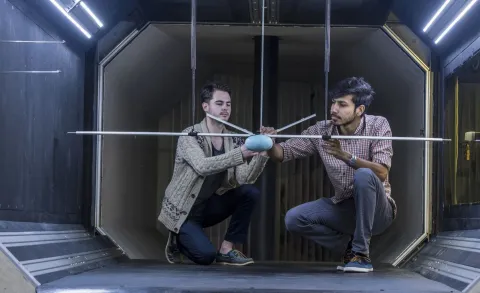
Wind tunnels
Course location.
This course is based at Boldrewood .
Awarding body
This qualification is awarded by the University of Southampton.
Download the Course Description Document
The Course Description Document details your course overview, your course structure and how your course is taught and assessed.
- Download ODT Download 2024-25 Course Description Document
Entry requirements
You’ll need a 2:1 degree in:
- marine or maritime engineering
- naval architecture
- ship science
- aerospace engineering
- mechanical engineering
- general engineering
- electrical engineering
- mathematics
You'll also need a 2:1 in maths and mechanics modules.
We may consider applicants with undergraduate degrees in oceanography or architecture, or applicants from marine academies. Find the equivalent international qualifications for your country.
Information for students who have studied in China
This programme only accepts applicants who have studied at an X1, X2, X3 or X4 institution.
View acceptable grades from Chinese universities .
English language requirements
If English isn't your first language, you'll need to complete an International English Language Testing System (IELTS) to demonstrate your competence in English. You'll need all of the following scores as a minimum:
IELTS score requirements
We accept other English language tests. Find out which English language tests we accept.
If you don’t meet the English language requirements, you can achieve the level you need by completing a pre-sessional English programme before you start your course.
Pre-masters
If you don’t meet the academic requirements, you can complete a pre-master's programme through our partnership with OnCampus. Learn more about the programmes available .
Recognition of professional experience
If you don't have the exact entry requirements, but you have significant work experience in this sector we’ll assess your relevant professional experience, your subject knowledge and your aptitude for learning.
Your application will be considered on individual merit and you may be asked to attend an interview.
Got a question?
Please contact us if you're not sure you have the right experience or qualifications to get onto this course.
Email: [email protected] Tel: +44(0)23 8059 5000
Course structure
This is a full-time master’s course studied over 12 months.
In the first 8 months (semesters 1 and 2) you'll study the taught part of your course.
This is made up of modules that everyone on the course takes, and modules we’ll ask you to choose from a list of options.
For the last 4 months, over the summer, you’ll work independently to research and write your dissertation. You’ll have one-to-one meetings with your supervisor during this time to discuss your progress. You’ll carry out an experimental or numerical research project, and benefit from our Southampton Marine and Maritime Institute (SMMI) research network and our world-class maritime engineering facilities , including the largest towing tank in any UK university.
Want more detail? See all the modules in the course.
The modules outlined provide examples of what you can expect to learn on this degree course based on recent academic teaching. As a research-led University, we undertake a continuous review of our course to ensure quality enhancement and to manage our resources. The precise modules available to you in future years may vary depending on staff availability and research interests, new topics of study, timetabling and student demand. Find out why, when and how we might make changes .
For entry in academic year 2025 to 2026
Year 1 modules.
You must study the following modules :
Composites Engineering Design and Mechanics
This module provides an in depth coverage of the mechanics of fibre-reinforced polymer materials and structures. The core of the course encompass modelling of the 2D orthotropic lamina reduced from 3D continuum mechanics for anisotropic solids, classical ...
Fundamentals of Maritime Engineering
This fundamentals module is aimed primarily for the MSc students in Maritime Engineering Science and students on the MECH/Navel Engineering programmes. It provides them with the essential knowledge of Maritime Engineering required for their subsequent stu...
MSc Research Project
Within the context of your programme of study, students will undertake independent, original and critical research on a relevant topic. Students will then communicate the research objectives, methodology, analysis, results and conclusions effectively both...
Maritime Safety: Risk, Environment and Law
In view of the Engineering Council’s support for the development of engineering degrees that will equip students to become professional engineers, the module follows the European Network for Engineering Accreditation guidelines to contribute to graduate a...
Sailing Yacht and Powercraft Design
This module takes a practical approach primarily through assignment/project lead application of concepts of yacht design, applicable to both powered and sailing craft. Four assignments in areas of initial design, hull design, sailplan and rig development ...
Yacht and High Performance Craft
This module covers the performance and design of a variety of high performance small craft: namely semi-displacement, planing craft and catamarans as well as sailing yachts, hydrofoils and hovercraft. It will examine the basic mechanics and fluid dynamics...
You must also choose from the following modules :
Applications of CFD
The basic concept of Computational Fluid Dynamics and numerical procedures (FVM/FDM) are introduced. The major focus is practical applications, including geometry and grid generation, using solvers and turbulence models in CFD packages, and interpretation...
Design Search and Optimisation (DSO) - Principles, Methods, Parameterizations and Case Studies
This module introduces students to formal design search and optimization (DSO) approaches using a mixture of lectures covering theory and practice and a series of worked case studies with student participation.
Failure of Materials and Components
In this module, the emphasis moves away from alloy development and design, and focuses on the performance of structural materials in a range of engineering applications. The lectures draw on examples from applications of ceramics, steel, Al, Ti and Ni bas...
Finite Element Analysis in Solid Mechanics
Many real-world engineering structures are too complex for their behaviour to be understood using an ‘exact’ analytical or theoretical method alone. Therefore, in practice we often use approximate numerical or simulation-based tools for structural analysi...
Marine Hydrodynamics
This module extends the fundamentals of fluid mechanics in the context of naval architecture and ocean engineering including water waves and the fluid loading and motion of maritime structures and vessels in waves. Students will assess the concepts of add...
Marine Structures
This module extends the structural analysis principles to marine structural design and assessment, building on the fundamentals established in the previous “materials and structures” and “ship structural design and production” courses. Students will asses...
Maritime Robotics
This module introduces the theoretical and practical design of maritime robotics systems such as autonomous underwater and surface vehicles (AUVs, ASVs). Students will be introduced to the theoretical principles underlying their design including aspect...
Zero Carbon Ship Resistance and Propulsion
Maximising the propulsive efficiency of ships is key to their economic effectiveness and in minimising their emissions of CO2, NOx and SOx. Advances in ship performance require a detailed understanding of the fluid dynamic mechanisms which control the flo...
Learning and assessment
The learning activities for this course include:
- lectures
- classes and tutorials
- coursework
- individual and group projects
- independent learning (studying on your own)
We’ll assess you through:
- coursework, laboratory reports and essays
- a dissertation
- essays
- group essays
- written exams
Dissertation
You’ll carry out an original piece of research, resulting in a dissertation, on a subject of your choice (to be agreed with your supervisor).
The project is a chance for you to develop your research skills and show in-depth knowledge of your chosen subject.
Academic Support
You’ll be assigned a personal academic tutor and have access to a senior tutor.
The maritime sector provides varied career opportunities in engineering and project management related roles. Maritime engineering science graduates are in strong demand with good starting salaries and excellent career progression opportunities. Our graduates work across many different organisations. The Solent region around Southampton is the main UK hub for the maritime sector with organisations such as:
- Lloyd’s Register
- Carnival
- Nigel Gee
- the Maritime and Coastguard Agency
Organisations such BAE Systems, QinetiQ and Babcock support the defence sector and employ a number of our graduates. The offshore and marine renewable developments are offering excellent prospects both to work in the UK (locally, London or Aberdeen) or worldwide in places such as Singapore, Houston or Perth.
Careers services at Southampton
We're a top 20 UK university for employability (QS Graduate Employability Rankings 2022). Our Careers, Employability and Student Enterprise team will support you throughout your time as a student and for up to 5 years after graduation. This support includes:
- work experience schemes
- CV/resume and interview skills workshops
- networking events
- careers fairs attended by top employers
- a wealth of volunteering opportunities
- study abroad and summer school opportunities
We have a thriving entrepreneurship culture. You'll be able to take advantage of:
- our dedicated start-up incubator, Futureworlds
- a wide variety of enterprise events run throughout the year
- our partnership in the world’s number 1 business incubator, SETsquared
Fees, costs and funding
Tuition fees.
Fees for a year's study:
- UK students pay £9,250.
- EU and international students pay £31,500.
Check fees for other versions of this course .
If you're an international student on a full-time course, we'll ask you to pay £2,000 of your tuition fees in advance, as a deposit.
Your offer letter will tell you when this should be paid and provide full terms and conditions.
Find out about exemptions, refunds and how to pay your deposit on our tuition fees for overseas students page.
What your fees pay for
Your tuition fee covers the full cost of tuition and any exams. The fee you pay will remain the same each year from when you start studying this course. This includes if you suspend and return.
Find out how to pay your tuition fees .
Accommodation and living costs, such as travel and food, are not included in your tuition fees. There may also be extra costs for retake and professional exams.
- accommodation costs
- living costs
- budgeting advice
- fees, charges and expenses regulations
10% alumni discount
If you’re a graduate of the University of Southampton, you could be eligible for a 10% discount on your postgraduate tuition fees.
Postgraduate Master’s Loans (UK nationals only)
This can help with course fees and living costs while you study a postgraduate master's course. Find out if you're eligible .
Southampton Engineering Deans Postgraduate International Scholarship
A scholarship of £5,000 is available to international students studying for a postgraduate master’s in Engineering.
Find out more about the Southampton Engineering Deans International Scholarship , including eligibility and conditions.
Other postgraduate funding options
A variety of additional funding options may be available to help you pay for your master’s study. Both from the University and other organisations.
Funding for EU and international students
Find out about funding you could get as an international student .
- Use the blue 'apply for this course' button on this page to take you to our postgraduate admissions system.
- Create an account which gives you access to your own application portal. .
- Search for the course you want to apply for.
- Complete the application form and upload any supporting documents.
- Pay the £50 application assessment fee, (there are some exemptions, check terms and conditions ).
- Submit your application.
For further details of our admission process, read our step by step guide to postgraduate taught applications .
Application deadlines
Uk students.
The deadline to apply for this course is Tuesday 9 September 2025, midday UK time.
We advise applying early as applications may close before the expected deadline if places are filled.
The deadline to apply for this course is Tuesday 26 August 2025, midday UK time.
Application assessment fee
We’ll ask you to pay a £50 application assessment fee if you’re applying for a postgraduate taught course.
This is an extra one-off charge which is separate to your tuition fees and is payable per application. It covers the work and time it takes us to assess your application. You’ll be prompted to pay when you submit your application which won’t progress until you've paid.
If you're a current or former University of Southampton student, or if you’re applying for certain scholarships, you will not need to pay the fee. PGCE applications through GOV.UK and Master of Research (MRes) degree applications are also exempt. Find out if you’re exempt on our terms and conditions page .

Supporting information
When you apply you’ll need to submit a personal statement explaining why you want to take the course.
You’ll need to include information about:
- your knowledge of the subject area
- why you want to study a postgraduate qualification in this course
- how you intend to use your qualification
References are not required for this programme.
Please include the required paperwork showing your first degree and your IELTS English language test score (if you are a non-native English speaker) with your application. Without these, your application may be delayed.
What happens after you apply
You'll be able to track your application through our online Applicant Record System.
We will aim to send you a decision 6 weeks after you have submitted your application.
If we offer you a place, you will need to accept the offer within 30 working days. If you do not meet this deadline, we will offer your place to another applicant.
Unfortunately, due to number of applications we receive, we may not be able to give you specific feedback on your application if you are unsuccessful.
Equality and diversity
We treat and select everyone in line with our Equality and Diversity Statement .
Related courses
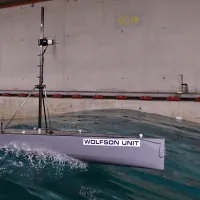
Maritime Engineering Science: Advanced Computational Engineering
Maritime engineering science: marine engineering and autonomy, maritime engineering science: naval architecture, maritime engineering science: ocean energy & offshore engineering.
- Course modules
- Acoustical engineering
- Biomedical and medical engineering
- Civil engineering
- Every day I’m completely immersed in an environment that’s creative in all aspects
- Everything I learn feels so relevant, even If it’s a subject rooted in the past
- Photonics and optoelectronics
- Social statistics and demography
- A missing link between continental shelves and the deep sea: Have we underestimated the importance of land-detached canyons?
- A study of rolling contact fatigue in electric vehicles (EVs)
- Acoustic monitoring of forest exploitation to establish community perspectives of sustainable hunting
- Acoustic sensing and characterisation of soil organic matter
- Advancing intersectional geographies of diaspora-led development in times of multiple crises
- Aero engine fan wake turbulence – Simulation and wind tunnel experiments
- Against Climate Change (DACC): improving the estimates of forest fire smoke emissions
- All-in-one Mars in-situ resource utilisation (ISRU) system and life-supporting using non-thermal plasma
- An electromagnetic study of the continent-ocean transition southwest of the UK
- An investigation of the relationship between health, home and law in the context of poor and precarious housing, and complex and advanced illness
- Antibiotic resistance genes in chalk streams
- Being autistic in care: Understanding differences in care experiences including breakdowns in placements for autistic and non-autistic children
- Biogeochemical cycling in the critical coastal zone: Developing novel methods to make reliable measurements of geochemical fluxes in permeable sediments
- Bloom and bust: seasonal cycles of phytoplankton and carbon flux
- British Black Lives Matter: The emergence of a modern civil rights movement
- Building physics for low carbon comfort using artificial intelligence
- Building-resolved large-eddy simulations of wind and dispersion over a city scale urban area
- Business studies and management: accounting
- Business studies and management: banking and finance
- Business studies and management: decision analytics and risk
- Business studies and management: digital and data driven marketing
- Business studies and management: human resources (HR) management and organisational behaviour
- Business studies and management: strategy, innovation and entrepreneurship
- Carbon storage in reactive rock systems: determining the coupling of geo-chemo-mechanical processes in reactive transport
- Cascading hazards from the largest volcanic eruption in over a century: What happened when Hunga Tonga-Hunga Ha’apai erupted in January 2022?
- Characterisation of cast austenitic stainless steels using ultrasonic backscatter and artificial intelligence
- Climate Change effects on the developmental physiology of the small-spotted catshark
- Climate at the time of the Human settlement of the Eastern Pacific
- Collaborative privacy in data marketplaces
- Compatibility of climate and biodiversity targets under future land use change
- Cost of living in modern and fossil animals
- Creative clusters in rural, coastal and post-industrial towns
- Deep oceanic convection: the outsized role of small-scale processes
- Defect categories and their realisation in supersymmetric gauge theory
- Defining the Marine Fisheries-Energy-Environment Nexus: Learning from shocks to enhance natural resource resilience
- Design and fabrication of next generation optical fibres
- Developing a practical application of unmanned aerial vehicle technologies for conservation research and monitoring of endangered wildlife
- Development and evolution of animal biomineral skeletons
- Development of all-in-one in-situ resource utilisation system for crewed Mars exploration missions
- Ecological role of offshore artificial structures
- Effect of embankment and subgrade weathering on railway track performance
- Efficient ‘whole-life’ anchoring systems for offshore floating renewables
- Electrochemical sensing of the sea surface microlayer
- Engagement with nature among children from minority ethnic backgrounds
- Enhancing UAV manoeuvres and control using distributed sensor arrays
- Ensuring the Safety and Security of Autonomous Cyber-Physical Systems
- Environmental and genetic determinants of Brassica crop damage by the agricultural pest Diamondback moth
- Estimating marine mammal abundance and distribution from passive acoustic and biotelemetry data
- Evolution of symbiosis in a warmer world
- Examining evolutionary loss of calcification in coccolithophores
- Explainable AI (XAI) for health
- Explaining process, pattern and dynamics of marine predator hotspots in the Southern Ocean
- Exploring dynamics of natural capital in coastal barrier systems
- Exploring the mechanisms of microplastics incorporation and their influence on the functioning of coral holobionts
- Exploring the potential electrical activity of gut for healthcare and wellbeing
- Exploring the trans-local nature of cultural scene
- Facilitating forest restoration sustainability of tropical swidden agriculture
- Faulting, fluids and geohazards within subduction zone forearcs
- Faulting, magmatism and fluid flow during volcanic rifting in East Africa
- Fingerprinting environmental releases from nuclear facilities
- Flexible hybrid thermoelectric materials for wearable energy harvesting
- Floating hydrokinetic power converter
- Glacial sedimentology associated subglacial hydrology
- Green and sustainable Internet of Things
- How do antimicrobial peptides alter T cell cytokine production?
- How do calcifying marine organisms grow? Determining the role of non-classical precipitation processes in biogenic marine calcite formation
- How do neutrophils alter T cell metabolism?
- How well can we predict future changes in biodiversity using machine learning?
- Hydrant dynamics for acoustic leak detection in water pipes
- If ‘Black Lives Matter’, do ‘Asian Lives Matter’ too? Impact trajectories of organisation activism on wellbeing of ethnic minority communities
- Illuminating luciferin bioluminescence in dinoflagellates
- Imaging quantum materials with an XFEL
- Impact of neuromodulating drugs on gut microbiome homeostasis
- Impact of pharmaceuticals in the marine environment in a changing world
- Improving subsea navigation using environment observations for long term autonomy
- Information theoretic methods for sensor management
- Installation effect on the noise of small high speed fans
- Integrated earth observation mapping change land sea
- Interconnections of past greenhouse climates
- Investigating IgG cell depletion mechanisms
- Is ocean mixing upside down? How mixing processes drive upwelling in a deep-ocean basin
- Landing gear aerodynamics and aeroacoustics
- Lightweight gas storage: real-world strategies for the hydrogen economy
- Machine learning for multi-robot perception
- Marine ecosystem responses to past climate change and its oceanographic impacts
- Mechanical effects in the surf zone - in situ electrochemical sensing
- Microfluidic cell isolation systems for sepsis
- Migrant entrepreneurship, gender and generation: context and family dynamics in small town Britain
- Miniaturisation in fishes: evolutionary and ecological perspectives
- Modelling high-power fibre laser and amplifier stability
- Modelling soil dewatering and recharge for cost-effective and climate resilient infrastructure
- Modelling the evolution of adaptive responses to climate change across spatial landscapes
- Nanomaterials sensors for biomedicine and/or the environment
- New high-resolution observations of ocean surface current and winds from innovative airborne and satellite measurements
- New perspectives on ocean photosynthesis
- Novel methods of detecting carbon cycling pathways in lakes and their impact on ecosystem change
- Novel technologies for cyber-physical security
- Novel transparent conducting films with unusual optoelectronic properties
- Novel wavelength fibre lasers for industrial applications
- Ocean circulation and the Southern Ocean carbon sink
- Ocean influence on recent climate extremes
- Ocean methane sensing using novel surface plasmon resonance technology
- Ocean physics and ecology: can robots disentangle the mix?
- Ocean-based Carbon Dioxide Removal: Assessing the utility of coastal enhanced weathering
- Offshore renewable energy (ORE) foundations on rock seabeds: advancing design through analogue testing and modelling
- Optical fibre sensing for acoustic leak detection in buried pipelines
- Optimal energy transfer in nonlinear systems
- Optimizing machine learning for embedded systems
- Oxidation of fossil organic matter as a source of atmospheric CO2
- Partnership dissolution and re-formation in later life among individuals from minority ethnic communities in the UK
- Personalized multimodal human-robot interactions
- Preventing disease by enhancing the cleaning power of domestic water taps using sound
- Quantifying riparian vegetation dynamics and flow interactions for Nature Based Solutions using novel environmental sensing techniques
- Quantifying the response and sensitivity of tropical forest carbon sinks to various drivers
- Quantifying variability in phytoplankton electron requirements for carbon fixation
- Resilient and sustainable steel-framed building structures
- Resolving Antarctic meltwater events in Southern Ocean marine sediments and exploring their significance using climate models
- Robust acoustic leak detection in water pipes using contact sound guides
- Silicon synapses for artificial intelligence hardware
- Smart photon delivery via reconfigurable optical fibres
- The Gulf Stream control of the North Atlantic carbon sink
- The Mayflower Studentship: a prestigious fully funded PhD studentship in bioscience
- The calming effect of group living in social fishes
- The duration of ridge flank hydrothermal exchange and its role in global biogeochemical cycles
- The evolution of symmetry in echinoderms
- The impact of early life stress on neuronal enhancer function
- The oceanic fingerprints on changing monsoons over South and Southeast Asia
- The role of iron in nitrogen fixation and photosynthesis in changing polar oceans
- The role of singlet oxygen signaling in plant responses to heat and drought stress
- Time variability on turbulent mixing of heat around melting ice in the West Antarctic
- Triggers and Feedbacks of Climate Tipping Points
- Uncovering the drivers of non-alcoholic fatty liver disease progression using patient derived organoids
- Understanding recent land-use change in Snowdonia to plan a sustainable future for uplands: integrating palaeoecology and conservation practice
- Understanding the role of cell motility in resource acquisition by marine phytoplankton
- Understanding the structure and engagement of personal networks that support older people with complex care needs in marginalised communities and their ability to adapt to increasingly ‘digitalised’ health and social care
- Unpicking the Anthropocene in the Hawaiian Archipelago
- Unraveling oceanic multi-element cycles using single cell ionomics
- Unravelling southwest Indian Ocean biological productivity and physics: a machine learning approach
- Using acoustics to monitor how small cracks develop into bursts in pipelines
- Using machine learning to improve predictions of ocean carbon storage by marine life
- Vulnerability of low-lying coastal transportation networks to natural hazards
- X-ray imaging and property characterisation of porous materials
- Black Futures scholarship
- GREAT Scholarships 2025 – Egypt
- GREAT Scholarships 2025 – France
- GREAT Scholarships 2025 – Ghana
- Horizon Europe fee waiver
- Innovation and Social Impact Scholarships
- Postgraduate Taught Diversity Scholarship (Environmental and Life Sciences)
- Southampton Business School Postgraduate UK Scholarship
- Southampton Genomics Talent Scholarship
- Southampton History Patricia Mather and Helen Patterson Scholarship
- Southampton MA Holocaust scholarships
- Southampton Philosophy David Humphris-Norman Scholarship
- Southampton Photonics Impact Scholarship
- Southampton UK Alumni Music Scholarship
- The National Institute for Health and care Research South Central INSIGHT Programme
- The South Coast Doctoral Training Partnership Social Science PhD Studentships
- Engineering Excellence Scholarship
- Southampton Physics and Astronomy Achievement Scholarship
- Presidential bursaries
- Winchester School of Art Postgraduate Global Talent Scholarship
- Southampton Education Civic Scholarship
- Southampton Ageing and Gerontology Talent Scholarship
- Southampton Presidential International Scholarship
- Engineering Global Talent Scholarship
- Southampton University Corporate Civil Engineering Scholarship Scheme
- Winchester School of Art Progression Scholarship
- Excellence Scholarship
- Merit scholarships for international undergraduates
- Scholarships, awards and funding opportunities
- Becas Chile Scholarship
- Chevening Scholarships
- China Scholarship Council Scholarships
- COLFUTURO Scholarships
- Commonwealth Master's Scholarships
- Commonwealth PhD Scholarships
- Commonwealth PhD Scholarships for high income countries
- Commonwealth Shared Scholarships
- Commonwealth Split-Site Scholarships
- FIDERH Scholarships
- Fulbright Awards
- FUNED Scholarships
- Great Scholarships 2024 – Mexico
- Great Scholarships 2024 – Nigeria
- Marshall Scholarship
- Saïd Foundation Scholarships
- British Council Scholarships for Women in STEM
- Southampton Canadian Prestige Scholarship for Law
- Xiamen University PhD Scholarships
- Scholarship terms and conditions
- Radiochemistry course
- Archers Road
- City Gateway
- Erasmus Park
- Highfield Hall
- Orion Point
- Wessex Lane
- Cancer Sciences Protein Facility
- Geotechnical Centrifuge
- Maritime Robotics and Instrumentation Laboratory (MRIL)
- Active Living
- Advanced Fibre Applications
- Advanced Laser Laboratory
- Advanced Project Management Research Centre
- Antibody and Vaccine Group
- Astronomy Group
- Autism Community Research Network @ Southampton (ACoRNS)
- Bioarchaeology and Osteoarchaeology at Southampton (BOS)
- Bladder and Bowel Management
- Cell and Developmental Biology
- Centre for Defence and Security Research
- Centre for Developmental Origins of Health and Disease
- Centre for Digital Finance
- Centre for Eastern European and Eurasian Studies (CEEES)
- Centre for Empirical Research in Finance and Banking (CERFIB)
- Centre for Geometry, Topology, and Applications
- Centre for Global Englishes
- Centre for Global Health and Policy (GHaP)
- Centre for Green Maritime Innovation (cGMI)
- Centre for Health Technologies
- Centre for Healthcare Analytics
- Centre for Human Development, Stem Cells and Regeneration
- Centre for Imperial and Postcolonial Studies
- Centre for Inclusive and Sustainable Entrepreneurship and Innovation (CISEI)
- Centre for International Film Research (CIFR)
- Centre for International Law and Globalisation
- Centre for Internet of Things and Pervasive Systems
- Centre for Justice Studies
- Centre for Linguistics, Language Education and Acquisition Research
- Centre for Machine Intelligence
- Centre for Maritime Archaeology
- Centre for Medieval and Renaissance Culture (CMRC)
- Centre for Modern and Contemporary Writing (CMCW)
- Centre for Political Ethnography (CPE)
- Centre for Research in Accounting, Accountability and Governance
- Centre for Research on Work and Organisations
- Centre for Resilient Socio-Technical Systems
- Centre for Transnational Studies
- Child and Adolescent Research Group
- Clinical Ethics, Law and Society (CELS)
- Computational Nonlinear Optics
- Cyber Security Academy
- Data Science Group
- Digital Oceans
- EPSRC and MOD Centre for Doctoral Training in Complex Integrated Systems for Defence and Security
- Economic Theory and Experimental Economics
- Economy, Society and Governance
- Electrical Power Engineering
- Environmental Hydraulics
- Gas Photonics in Hollow Core Fibres
- Geochemistry
- Global Health (Demography)
- Global Health Community of Practice
- Gravity group
- Healthy Oceans
- High Power Fibre Lasers
- Hollow Core Fibre
- Human Genetics and Genomic Medicine
- Infrastructure Group
- Institute of Developmental Sciences
- Institute of Maritime Law (IML)
- Integrated Photonic Devices
- Integrative Molecular Phenotyping Centre
- Interdisciplinary Musculoskeletal Health
- International Centre for Ecohydraulics Research (ICER)
- Language Assessment and Testing Unit (LATU)
- Laser-Direct-Write (LDW) Technologies for Biomedical Applications
- Law and Technology Centre
- Long Term Conditions
- Magnetic Resonance
- Mathematical Modelling
- Medicines Management
- Molecular and Precision Biosciences
- Multiwavelength Accretion and Astronomical Transients
- National Biofilms Innovation Centre (NBIC)
- National Centre for Research Methods
- National Infrastructure Laboratory
- Nature-Based Ocean Solutions
- Nonlinear Semiconductor Photonics
- Ocean Perception Group
- Operational Research
- Optical Engineering and Quantum Photonics Group
- Paediatrics and Child Health - Clinical and Experimental Sciences
- People, Property, Community
- Photonic Systems, Circuits and Sensors Group
- Physical Optics
- Primary Care Research Centre
- Quantum, Light and Matter Group
- Silica Fibre Fabrication
- Silicon Photonics
- Skin Sensing Research Group
- Southampton Centre for Nineteenth-Century Research
- Southampton Ethics Centre
- Southampton Health Technology Assessments Centre (SHTAC)
- Southampton High Energy Physics group
- Southampton Imaging
- Southampton Theory Astrophysics and Gravity (STAG) Research Centre
- Stefan Cross Centre for Women, Equality and Law
- String theory and holography
- The India Centre for Inclusive Growth and Sustainable Development
- The Parkes Institute
- Tony Davies High Voltage Laboratory
- Ultrafast X-ray Group
- Vision Science
- WSA Exchange
- Work Futures Research Centre (WFRC)
- A to Z list of spinout companies
- Spinout Equity Guide
- Departments
Old browser alert! We have detected you are using a pretty old browser. This website uses cool features that can't be supported by your browser.
If we let you see the website it would look all weird and broken, nobody wants that!

Superyacht Design
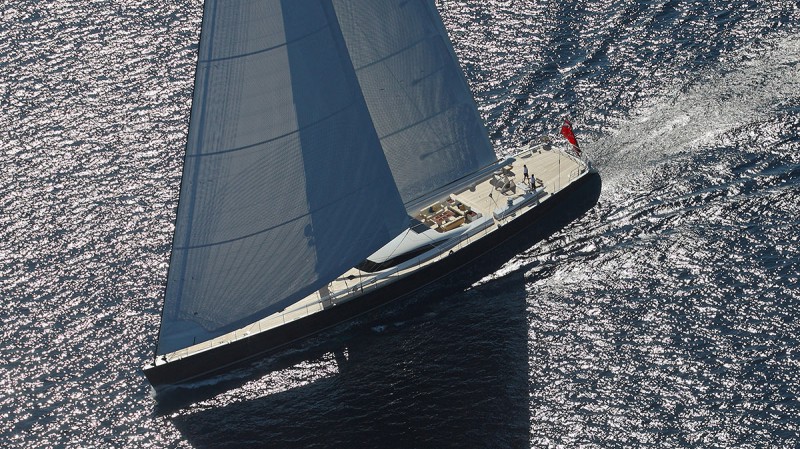
Production Yacht Design
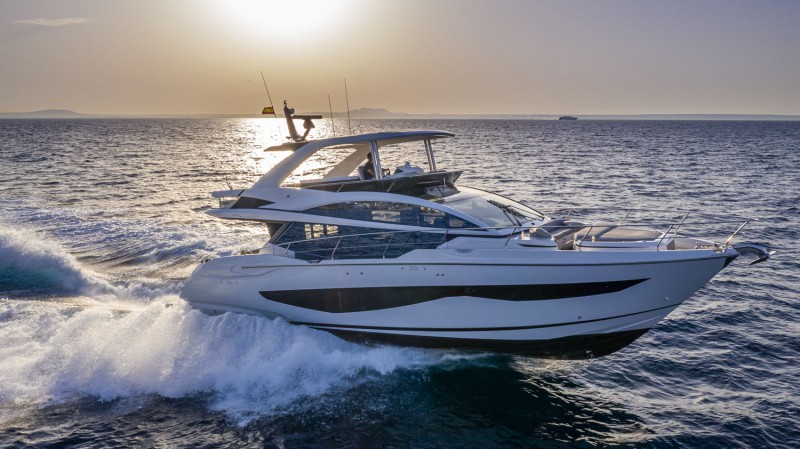
Custom Yacht Design

Dixon Yacht Design are an award-winning firm of Yacht Designers and Naval Architects who put forward an innovative, modern and sustainable approach.

MSc Sustainable Marine Craft and Superyacht Design
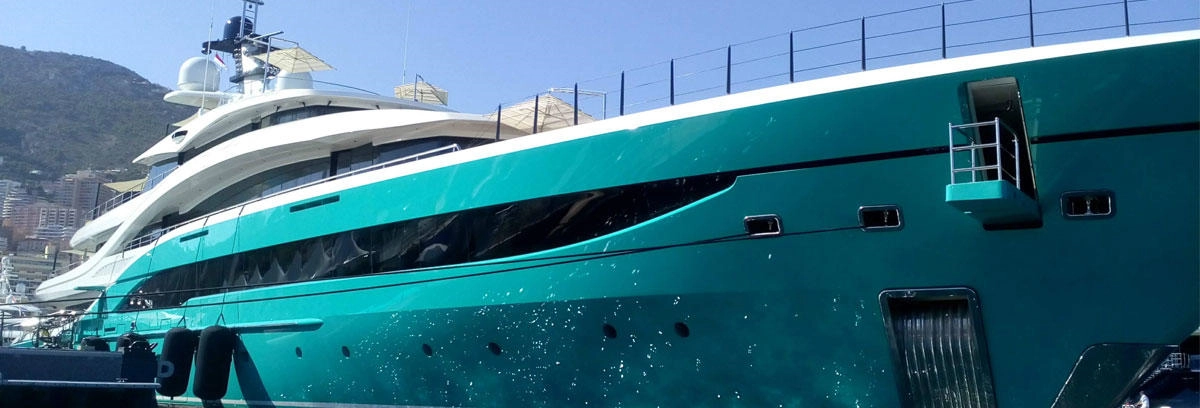
Why study a sustainable marine craft and superyacht design master's degree at Solent University
Discover latest techniques to develop new, sustainable superyacht and marine craft designs. Benefit from the combined expertise of Solent's yacht engineering team and Centre for Marine Sustainability.
- 0 years of yacht and powercraft design and production at Solent University
- £ 0 m investment in our campus and industry-standard facilities
- 0 th UK uni for sustained employment (LEO 2022)
- You'll have full access to industry-standard naval architecture software and CAD packages.
- The course combines the theoretical knowledge and practical design skills desired by employers.
- You'll be able to test the performance of your design using the University's 60m-long tow tank.
- Solent has a strong pedigree in yacht and powercraft design and production, delivering courses for 55 years.
- You'll be studying in the heart of the city of Southampton - close to the UK's top sailing areas and many design offices and production facilities. Southampton is also home to the UK's largest boat show.
- You'll hear from guest speakers from industry on current design developments, rule developments and current practice and help develop your design skills.
- You'll join established and globally recognised yacht design and production alumni, many of whom are major contributors to the design and production of some of the world’s leading marine craft brands and design offices for both leisure and commercial vessels.
Course overview
The MSc Sustainable Marine Craft and Superyacht Design course focuses on equipping you with the engineering knowledge and the analytical and practical technical design skills a future marine craft designer is expected to have on entering the leisure or commercial craft design and production industry, to design marine craft typically between 24 metres and 120 metres in length.
Alongside practical design projects, you will study naval architecture, structural design and system design. For all modules, your design must comply with relevant maritime statutory regulations and must have current sustainability and lifecycle requirements embedded within.
Working in Solent's marine design CAD suite, you will learn to use many commercially available drafting and modelling, and analytical software programs widely used across the marine design industry. You will use industry-standard hull lines fairing software to develop the hull, and CAD packages to develop 2D CAD drawings and 3D computer generated models of your designs.
You will also have access to Solent University’s 60 metres long tow tank, where you will be able to test and analyse the performance of a sailing or motor vessel and then develop the sail or wing plan for a wind assisted vessel, or the powertrain for a powered vessel.
On completion of the course, which may well finish with your dissertation completed alongside a commercial design office or production facility, you will have the design skills to join an exciting worldwide industry. Alternatively, you could complete further research by pursuing a PhD.
Any questions?
Contact UK admissions
- [email protected]
- 023 8201 5066
Contact international admissions
- [email protected]
- +44 (0)23 8201 5066
Speak to a tutor
Student work
Our creative degrees allow our students to develop a critical eye for design with a knowledge of different design approaches and problem solving techniques. Take a look at some of the great work they produce.
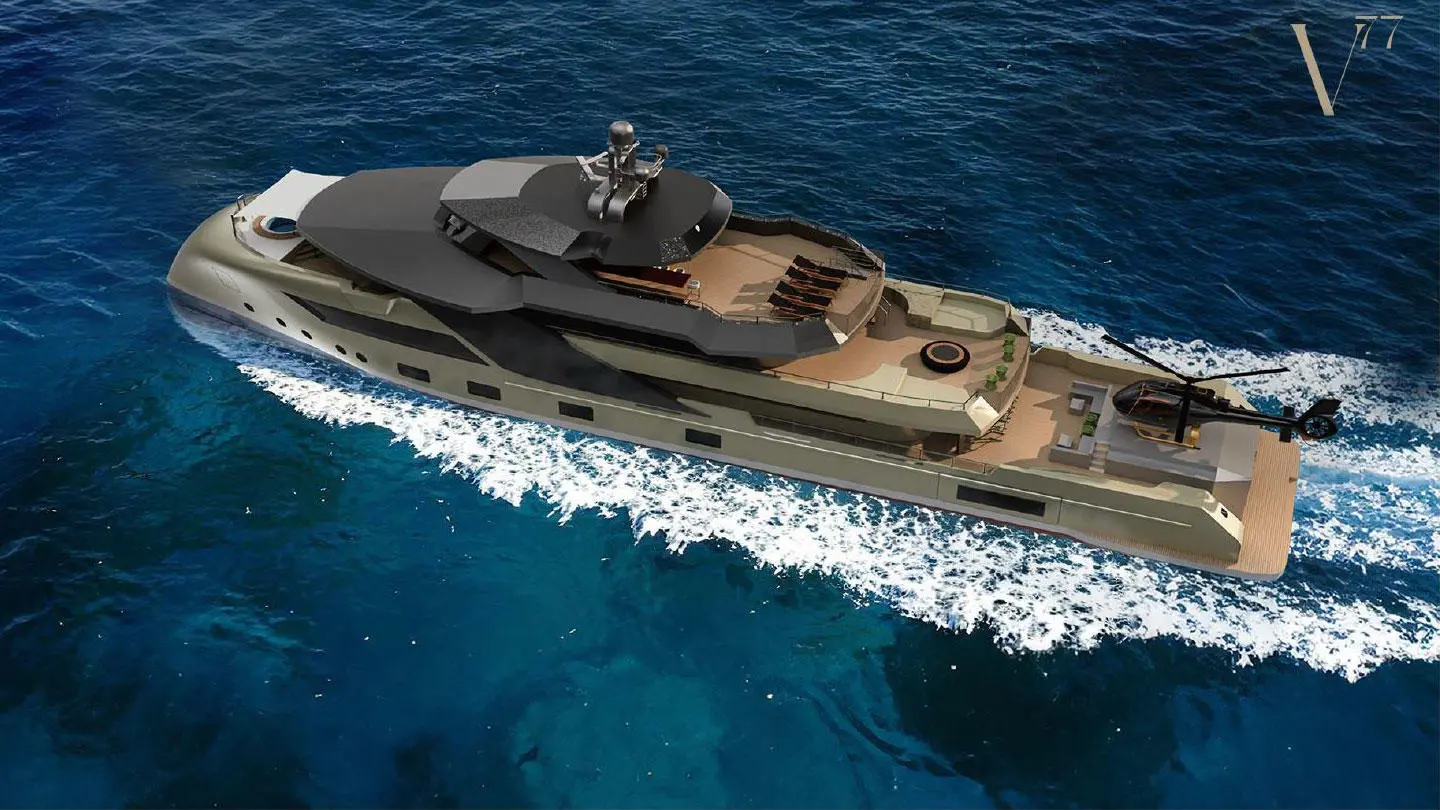
Course features
Apply direct.
You can apply direct to Solent University for this course
Specialist facilities
This course has access to specialist facilities
This course is for
This course is ideally suited to students who have an undergraduate degree in large ship design, engineering, architecture or technical product design, or for those who have practical seagoing experience of working vessels but who now wish to pursue a career in the marine design industry designing complex sustainable vessels between 24m and 120m in length.
What this course leads to
This course can lead to exciting worldwide careers as a superyacht or commercial craft designer, specialising in areas of naval architecture, marine craft design, or project management; or being an owner’s representative within both the superyacht and commercial craft industry.
- Naval architect
- Production manager
- Systems engineer
Meet the team
The academic team have many years' experience in teaching the analytical theory and the practical design associated with the development and design of commercial marine draft and superyachts. Collectively, their expertise and authority to deliver the latest marine craft design knowledge and real-world design practice is reinforced by actively engaging with academic consultancy, government funded projects, post-doctoral research, and industry experience and consultancy.
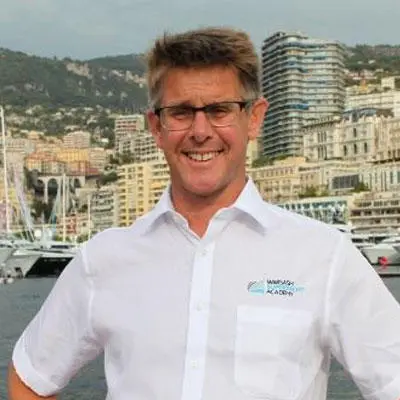
Giles Barkley
Course Leader
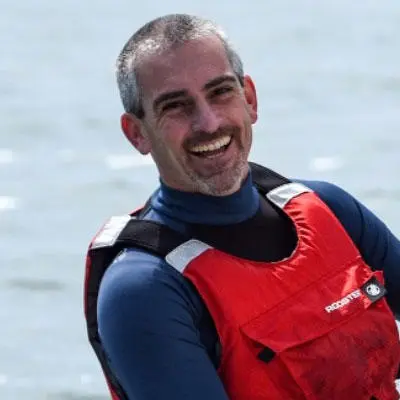
Vittorio Boccolini
Senior Lecturer

Dr Yifan Wang
The University cannot guarantee any particular members of staff will teach specific aspects of the course in the future, but will endeavour to ensure the teaching team maintains their balance of experience and qualifications.
To aid learning, students have full access to the University’s specialist yacht engineering and design facilities, including our composite construction workshop, yacht drawing office and modern CAD office, which is equipped with the latest commercial marine design and production software.
Students also have access to a fully-equipped specialist composite laboratory and materials testing laboratory, a 60m towing tank and static four-metre stability tank.
Year one modules
Core modules, naval architecture structures and systems.
This module covers three main areas: naval architecture, structural design, and systems design. You will learn the principles of stability, resistance, and propulsion, alongside the principles for dimensioning hull plating and scantlings to classification rules. You will also design and position on board the main systems required on board marine craft.
Marine Craft Production Management
In this module, you'll cover the vessel production management process from concept to delivery. Topics covered include specifications, contracts, production programming, costs, the production team, class, flag, owner’s representative, fitout planning, shipyard planning, and large vessel movements. The module also includes real vessel production case studies and shipyard visits.
Powered Craft Design Development
Working in groups, you will develop a large motor vessel in line with a client brief in groups and present the styling and layout of the design to the client midway through the module. The module also involves the technical development of the design, ensuring compliance with statutory and structural regulations. You will also consider alternative CO2 reducing power plants for the vessel.
Sustainable Marine Design
This module examines alternative marine fuels and propulsion system integration. It offers an in-depth insight into the properties, evolution, advantages, and disadvantages, and assesses the performance of vessel emissions elimination solutions to help prepare students for future challenges.
Wind Assisted Vessel Design
You will learn and apply the design and software skills to develop a preliminary design for a 30 to 40 metre sailing or wind-assisted vessel, applying new knowledge gained in other modules. You will also utilise International Maritime Organization (IMO) regulations, ensuring your design meets these. You may also consider novel wind assisted rigs too.
Marine Craft Dissertation
Your dissertation can be either an industry-based design, or production led, or an academic research-based project. The aim is to extend your knowledge beyond the taught syllabus - you will approach a specific topic by developing the project or widening knowledge, using traditional and innovative engineering techniques and design tools.
Learning resources
At Solent, our aim is to deliver innovative, inclusive and intellectually stimulating teaching to develop self-confident and highly employable graduates. All our courses are designed with employability in mind, which makes industry-based learning a priority.
Learn transferable skills
Students will develop creative thinking, problem-solving and analysis, production, project management and teamwork skills throughout the course.
Why choose a career in sustainable marine craft and superyacht design
There is currently demand from both the commercial and superyacht industry for graduates who possess the technical design and production skills to develop and project manage the marine craft.
Our previous yacht, power craft, and superyacht design courses have scored very highly in graduate destination surveys, with normally 90% of graduates securing employment in their chosen field. These courses have graduated more than 1000 students, most of whom are still in contact with the University. Local alumni have previously given guest lectures, as well as graduate employment and internship opportunities.
The course team also have excellent connections with the wider marine industry, occasionally providing further learning opportunities for current students.
Local companies include RWD (designers of Superyachts based in Beaulieu) and commercial vessel designers, Keel Marine (Based in Havant) and Incat Crowther are supporters of this course.
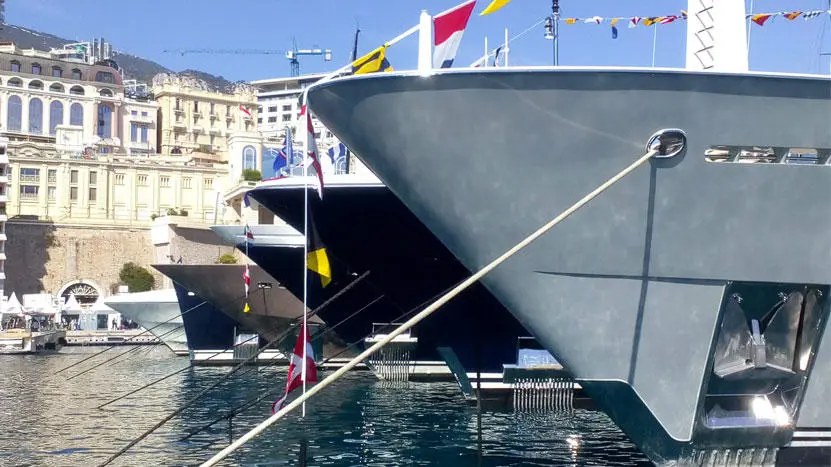
Solent Careers
The Solent Careers team is committed to getting students into great careers.
While you are studying, the team can help you with finding work experience or placements, link you with a mentor, check your CV, or offer one-to-one guidance.
If you're in your final year, we also have graduate job opportunities just for Solent graduates.

UK uni for sustained employment
Longitudinal Educational Outcomes, 2022
Alumni network
As part of our global alumni community, you can take advantage of a range of benefits.
Whether it's been days or decades since you left us, or you're soon to don your cap and gown, things are constantly changing at Solent. We're always innovating, but we're also immensely proud of our heritage. And that means you.

20% alumni discount
Research and knowledge exchange.
Research doesn't just live in publications and journals - the effects of groundbreaking research can be found everywhere you look. That's why research at Solent has always been firmly rooted in industry needs and real-world application.
Solent University prides itself on carrying out not only pioneering research, but also research that addresses real world problems. We offer opportunities to study for a Master of Philosophy (MPhil) or Doctor of Philosophy (PhD) degree in a number of areas.
At Solent, we want to help you achieve your best and discover new insights. Whether you're thinking about applying for a PhD, or already underway with your research studies, you'll find useful guidance and information in our research pages.
Tuition fees
The tuition fees for the 2025/26 academic year are:
- UK and Channel Island full-time fees: £10,400 per year
- International full-time fees: £18,350 per year
For further information, please visit our tuition fees page .
Extra course costs
While most course costs are covered by your tuition fees, some essential resources and optional extras may need to be paid for separately. These additional costs are listed below. For advice on budgeting and managing your money, please contact [email protected] .
Alumni discount
Solent alumni are eligible for a 20% reduction of tuition fees if returning to study a postgraduate course.
Bursaries, scholarships and financial support
Solent University offers a range of bursaries and scholarships that provide financial assistance or waive fees for tuition or accommodation. Each bursary or scholarship has specific eligibility criteria. Check out our bursaries and scholarships pages to find out more.
Cost of living support
At Solent, we understand that the cost of living crisis may be of some concern. To help, we've put together some detailed information to show what support is available and how to make your money go further.
Graduation costs
There is no charge to attend graduation, but you will be required to pay for the rental of your academic gown (approximately £45 per graduate, depending on your award). You may also wish to purchase official photography packages, which range in price from £15 to £200+. Graduation is not compulsory, so if you prefer to have your award sent to you, there is no cost. Extra guest tickets will go on sale after results publication and will be sold on a first-come-first-served basis. The cost per ticket is currently £15. Please note, we do not guarantee there will be any extra tickets available to purchase.
Student finance videos
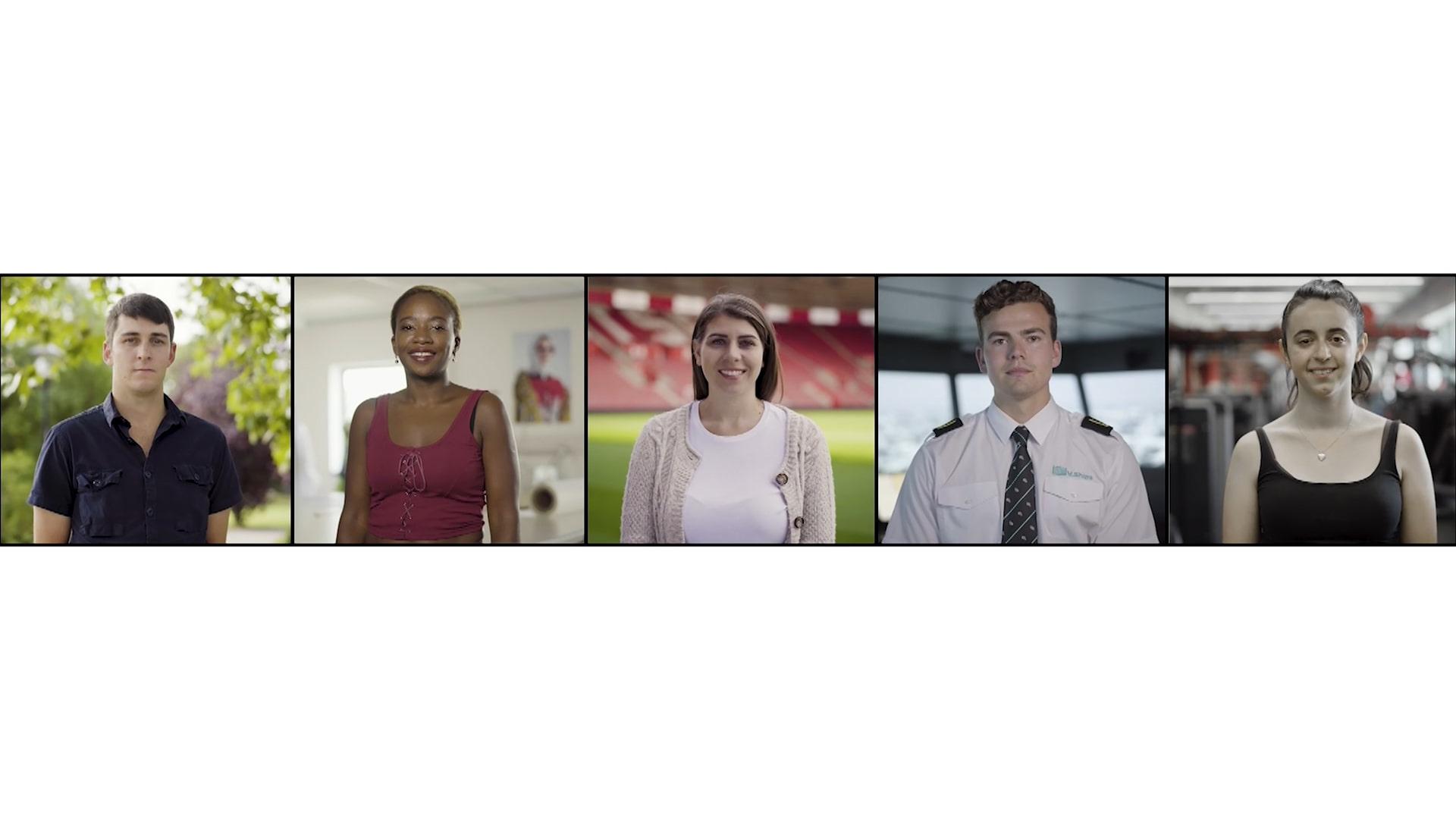
Entry requirements
Please select an option below:
Key entry requirements
First or 2:1 in an appropriate naval architecture, engineering, or technology subject.
Or professional qualification to either 3000GT superyacht captain, chief engineer or Master Mariner with appropriate experience.
If you are applying from outside the UK, find information about entry requirements, visas and agents for your country here .
For further information about UK, EU and international qualifications, please contact admissions .
Note to all international students requiring a visa
All international applicants need to be aware that the English language requirements to attend Solent University, and the English language requirements to obtain a visa from the Home Office, may be different. This means that if you meet the Solent University language requirement to gain a place on the course, you may still have to meet additional requirements to be granted with a visa by the Home Office.
We strongly advise all applicants to visit the Home Office website which outlines all the requirements for a successful visa application and to take a look at our 2023 course entry statement document.
An honours degree at 2:1 or higher
Your application checklist
Applications for postgraduate courses can be made at any time prior to the start of the course. However, we strongly recommend you apply at your earliest convenience.
Please ensure you upload the following mandatory documents with your application:
- Two academic references.
- Certified transcripts of qualifications, including English language proficiency if non-UK student.
- Copy of passport.
- Copy of current visa (if applicable).
- A personal statement.
- Employer sponsor form, where appropriate.
Language requirements
Applicants who do not have English as their first language will be required to demonstrate an approved level of proficiency in the use of the English language. The agreed minimum requirements for this course are:
- IELTS minimum 6.0 overall with a minimum of 5.5 in each individual component
- TOEFL IBT 92 with a minimum of 22 in writing and a minimum of 20 in reading, listening and speaking
- Duolingo English Language Test - 115 overall with minimum of 100 in each component or equivalent.
Qualifications are checked before enrolment, and international students must bring their original certificates or certified copies when coming to study at the University.
Pre-Sessional English programme The University also offers a pre-sessional English programme for international students who wish to improve their level of English before starting a degree course.
Study options
Full-time starting september 2024.
This course will start September 2024. You can apply direct now by clicking the 'Apply direct' button at the top of the page.
Full-time starting September 2025
This course will start September 2025. Please contact admissions for more information about applying.

Make your application
- 1 year full-time

Not ready to apply?

- NAVIS Digital Store - Activate Your Subscription
- Yachts Design Directory
Southampton Yacht Design.
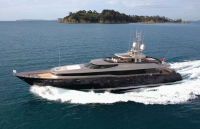
Welcome to the "Southampton Yacht Design" section of the NAVIS Luxury Yacht Directory. We take great pride in spotlighting the marvelous world of yacht design, with a special focus on the fantastic works originating from the historic city of Southampton.
Famous for its maritime heritage, Southampton has been a center of yacht innovation and a source of inspiration for yacht design for decades. Southampton yacht design is characterized by its union of classic traditions with modern innovations. A Southampton yacht represents an excellent example of British craftsmanship, encapsulating luxury yacht interior design that leaves a lasting impression.
Our curated selection of Southampton yachts showcases the rich diversity and creativity that this city has to offer. These vessels bear the hallmark of nautical excellence, boasting lavish interiors and cutting-edge technology, reflecting a deep understanding of the luxury yachting lifestyle. It's this attention to detail that sets Southampton yacht design apart, attracting enthusiasts and connoisseurs from around the globe.
In this dedicated section, we present a detailed account of the top Southampton yacht designers, the individuals defining and redefining yacht design's future. Through comprehensive profiles, we explore their creative journey, design philosophy, and unique contributions to this fine art. A high-resolution gallery allows you to admire Southampton yachts in all their grandeur, providing a visual treat for the eyes.
Our "Southampton Yacht Design" segment serves as a journey through the compelling world of bespoke yacht design in one of the UK's most vibrant maritime cities. If you'd like to suggest a new designer, design studio, or artist from Southampton, please contact NAVIS.
Immerse yourself in the elegance, master craftsmanship, and innovation that define Southampton yacht design as you navigate this section. We're delighted to lead you on this exciting exploration of supreme nautical luxury, straight from the heart of Southampton.
Yacht Designer
Interior Yacht Designer
John Munford
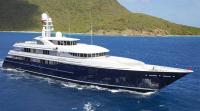
NAVIS Ten-Year Anniversary Edition
384 pages featuring the best of the best from the last ten years in the luxury yachting world.
Order printed or digital copies from the following stores.
We use cookies on our website. Some of them are essential for the operation of the site, while others help us to improve this site and the user experience (tracking cookies). You can decide for yourself whether you want to allow cookies or not. Please note that if you reject them, you may not be able to use all the functionalities of the site.

Yacht Design: Shining a Light on Southampton with Giles Barkley
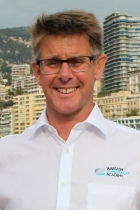
When it comes to choosing the right degree course for a career in superyacht design or production, there aren’t many institutions worldwide that can compete with the two Yacht Design and Production degrees taught at Southampton Solent University’s School of Maritime Science and Engineering, which includes Warsash Maritime Academy .
Former alumni include Richard Watson, CEO of Pascoe International, Bill Dixon of Dixon Yacht Design, leading French designer Guillaume Verdier, whose Open 60 designs cleaned up at the recent 2016 Vendée Globe single handed round the world race, Admirals Cup yacht designer Jason Ker, and leading race yacht designer Shaun Carkeek, to name just a few.
Leading alumni return to Solent University to guest lecture the rising talents of tomorrow, giving tips on design and how to carve out a successful career in yacht design and production technology, according to Giles Barkley, senior lecturer and course leader for the two degree courses Solent University offers.
Giles, who last year celebrated 25 years at the university, has seen many dramatic changes since the inception of the flagship Yacht and Powercraft Design degree in 1991.
‘In my quarter century at Solent University , the design tools used, the boat building materials employed and systems technology used on board has changed dramatically,’ Giles tells OnboardOnline. ‘Also the designer’s role has changed. The biggest change is that the boats have got a lot bigger.


IMAGES
COMMENTS
Why choose a career in yacht design? The UK has a strong pedigree in yacht design. According to British Marine, the industry is supported by over 38,000 jobs across a variety of roles, with over 10,000 new boats produced in 2019 for both domestic and international markets. Solent’s yacht design and production degree boasts race-winning ...
Yacht design requires a range of technical and engineering specialist skills, as well as a good grasp of hydrodynamics and mathematics. A yacht design degree offers the ideal combination of academic and hands-on technical skills; alternative routes into the role might be to undertake an apprenticeship with a design firm, or to take an entry-level position in a design firm and work your way up ...
This Maritime Engineering Science: Yacht and High-performance Craft MSc is one of 5 maritime engineering science specialisms you can study at the University of Southampton. This master's degree covers the core subjects and in-depth knowledge of maritime engineering science for both design and analysis of marine craft and structures within the ...
Southampton Solent University’s Yacht Design and Production Course has an international reputation and for good reason, as it features guest lectures from BMT Nigel Gee and work experience placements at Sunseeker International. Students on this three-year course study the engineering science behind great yacht design as well as the ...
Dixon Yacht Design are an award-winning firm of Yacht Designers and Naval Architects who put forward an innovative, modern and sustainable approach. Old browser alert! We have detected you are using a pretty old browser.
Course overview. The MSc Sustainable Marine Craft and Superyacht Design course focuses on equipping you with the engineering knowledge and the analytical and practical technical design skills a future marine craft designer is expected to have on entering the leisure or commercial craft design and production industry, to design marine craft typically between 24 metres and 120 metres in length.
A Southampton yacht represents an excellent example of British craftsmanship, encapsulating luxury yacht interior design that leaves a lasting impression. Our curated selection of Southampton yachts showcases the rich diversity and creativity that this city has to offer.
The course maintains close links with previous graduates, some of whom have gone on to work as naval architects, design engineers and yacht designers at companies such as Dubois Yachts, Laurent Giles Naval Architects, Ker Yacht Design, Sunseeker Yachts, Monaco Marine and Viareggio Shipyards in Italy.
Mar 22, 2024 · Solent University, Southampton, has introduced the Sustainable Marine Craft and Superyacht Design MSc for the 2024/25 academic year, marking the first of its kind in the UK. Applications are currently being accepted for a September 2024 start date.
When it comes to choosing the right degree course for a career in superyacht design or production, there aren’t many institutions worldwide that can compete with the two Yacht Design and Production degrees taught at Southampton Solent University’s School of Maritime Science and Engineering, which includes Warsash Maritime Academy.